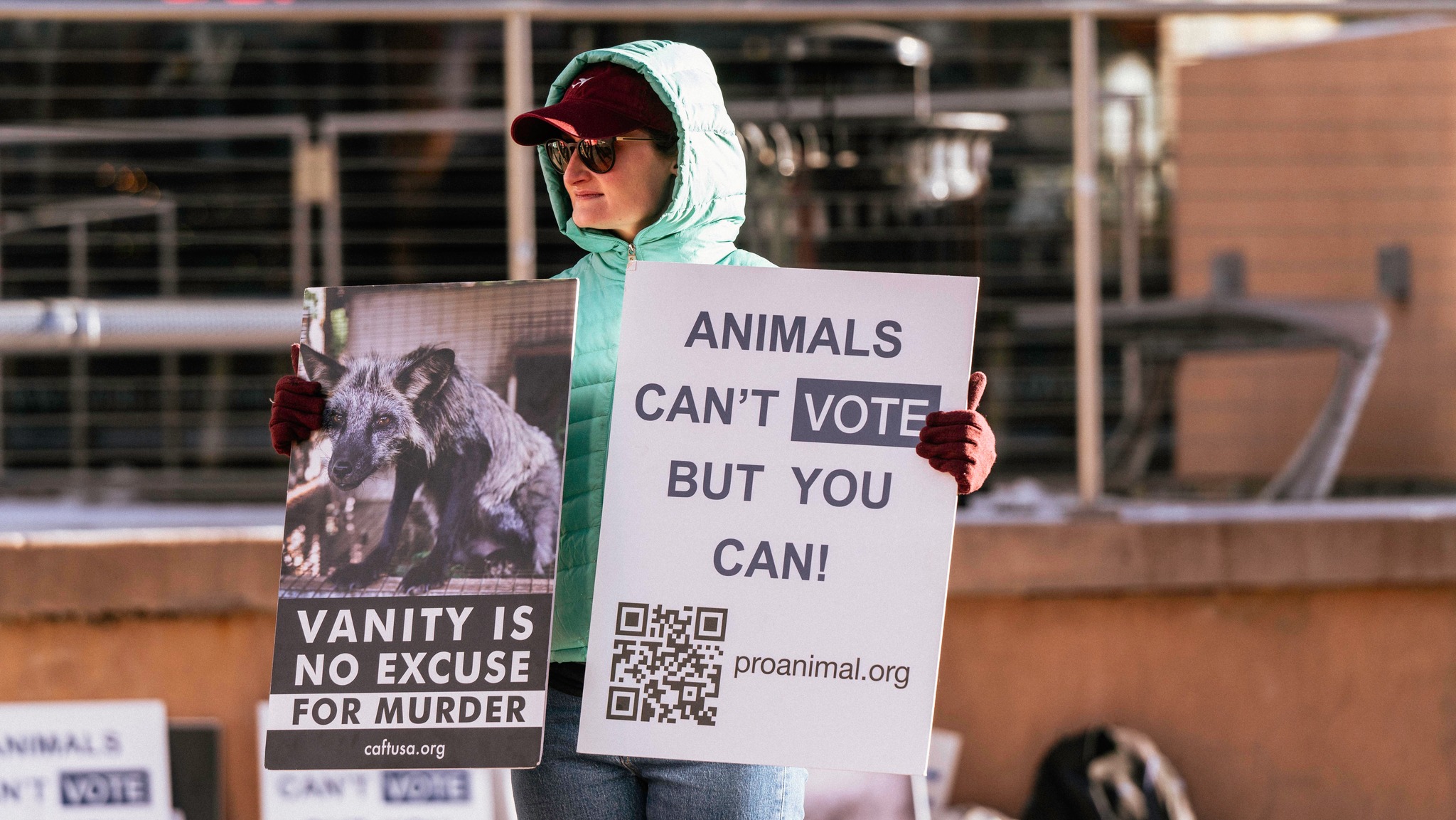One of the most controversial issues in the fashion industry today is the use of animal fur. What was previously a symbol of high-end luxury is now increasingly viewed as a symbol of cruelty and environmental destruction. The days of fur are numbered as society demands a more compassionate and sustainable fashion industry, leading to policies that seek to eliminate the use of fur entirely.
The proposed fur ban in Denver, which will be put to voters in 2024 as Initiated Ordinance 308, could be a significant milestone, pushing the city to align with a more compassionate and eco-friendly future. Why? Because banning fur isn’t just about animals; it’s about saying “yes” to a better, kinder world.
In this article, we will explore the 2024 Denver fur ban and why it’s so important. From the cruelty of fur farming to the environmental devastation caused by fur production, it’s time for Denver to join the growing movement of cities standing up and saying, “No more fur.” And here’s why that vote matters—for the animals, for the planet, and for us.
Overview of the Fur Ban in Denver
The proposed Denver fur ban will prohibit the sale, manufacture, and distribution of new fur products within the city, beginning on July 1, 2025. This initiative, officially titled Initiated Ordinance 308, is part of a global movement aiming to end the use of fur in fashion as people recognize the moral and environmental costs of this outdated industry.
If Initiated Ordinance 308 is passed in 2024, it will prohibit the sale of products made from new animal fur, including coats, accessories, and home decor items. That said, it will not affect the sale of second-hand fur products or items made from alternative materials like leather, wool, or sheepskin. It also includes specific exceptions to the Denver fur ban for Native American tribal members, allowing the continued sale of fur for traditional, cultural, or spiritual purposes. Initiative 308 carefully balances respect for cultural traditions while driving a necessary ethical shift in fashion. This exemption was crafted with the help of a community organizer and member of the Navajo nation, reflecting a commitment to empowering sovereign Indigenous nations to govern themselves on issues concerning them.
The Denver fur ban follows similar legislation banning the sale of new fur products in at least 16 cities across the US, as well as a statewide ban in California. By voting in favor of Ordinance 308, Denver residents will contribute to a growing movement to protect animals from cruel and unnecessary practices while supporting a more sustainable fashion industry.
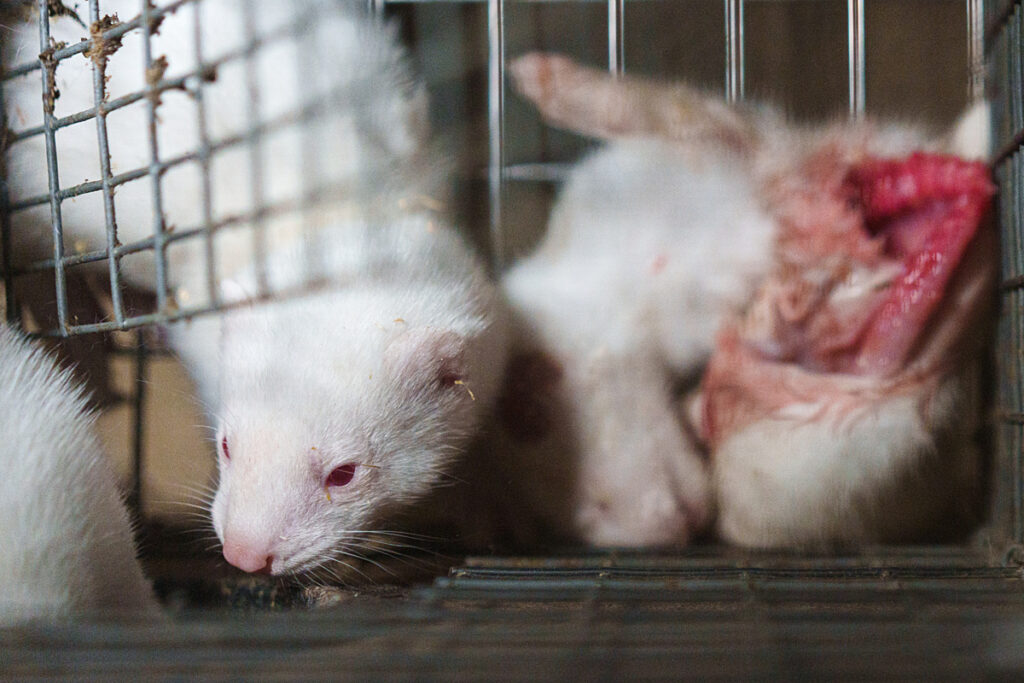
Fur Farming: Cruel and Unnecessary
At the heart of the fur sales ban is the extreme cruelty that animals suffer in fur farms, where approximately 95% of fur products come from. While fur may seem like a luxurious and natural material, its production is the opposite of humane. Animals bred for fur, such as foxes, minks, and chinchillas, spend their entire lives confined in small, filthy cages, where they are denied the ability to express any of their natural behaviors. In the wild, these animals would be free to roam vast areas, but in fur farms, they are cramped into spaces no larger than a square meter, causing immense physical and psychological distress.
Numerous investigations into fur farms have documented horrifying conditions. Animals are observed with open wounds, infections, and missing limbs. They’re seen pacing or chewing on the bars of their cages, which is a sign of severe psychological trauma (also called zoochosis).
Numerous and striking images of fur farms’ commonplace neglect are in dead animals left to rot alongside the living.
Following an undercover visit to three Finnish fur farms, HSUS reports that Dr. Marc Abraham, a veterinarian, noted: “the foxes showed signs of self-mutilation, a common symptom of psychological trauma that occurs when wild animals are denied appropriate enrichment or the freedom to move, run and exercise in their natural environments.”
These animals endure immense suffering throughout their lives, only to be killed using slaughter methods that have been specifically designed to preserve their fur while also being as cheap as possible.
According to the International Organization for Animal Protection, fur farmers often use electrocution, gassing, neck-breaking, or even live skinning to kill animals. These methods are not only inhumane but also unreliable, meaning that many animals do not die instantly and instead suffer drawn-out, agonizing deaths. Foxes, one of the most commonly farmed animals for fur, are particularly susceptible to this cruelty. In order to prevent damage to their valuable pelts, they are often killed using anal or genital electrocution, a practice that causes immense pain while leaving the fur untouched. Similarly, mink and other animals are often gassed, suffocated, or drowned, sometimes while fully conscious.
The scale of suffering in the fur industry is staggering. It can take as many as 40 foxes, 60 minks, or 150 chinchillas to produce a single fur coat. This means that millions of animals are killed every year purely for their pelts, often in countries with little to no animal welfare regulation, like China, which also happens to be the world’s largest exporter of furs. By banning the sale of new fur products, Denver Initiative 308 has the opportunity to help put an end to one of the fashion industry’s most brutal practices.
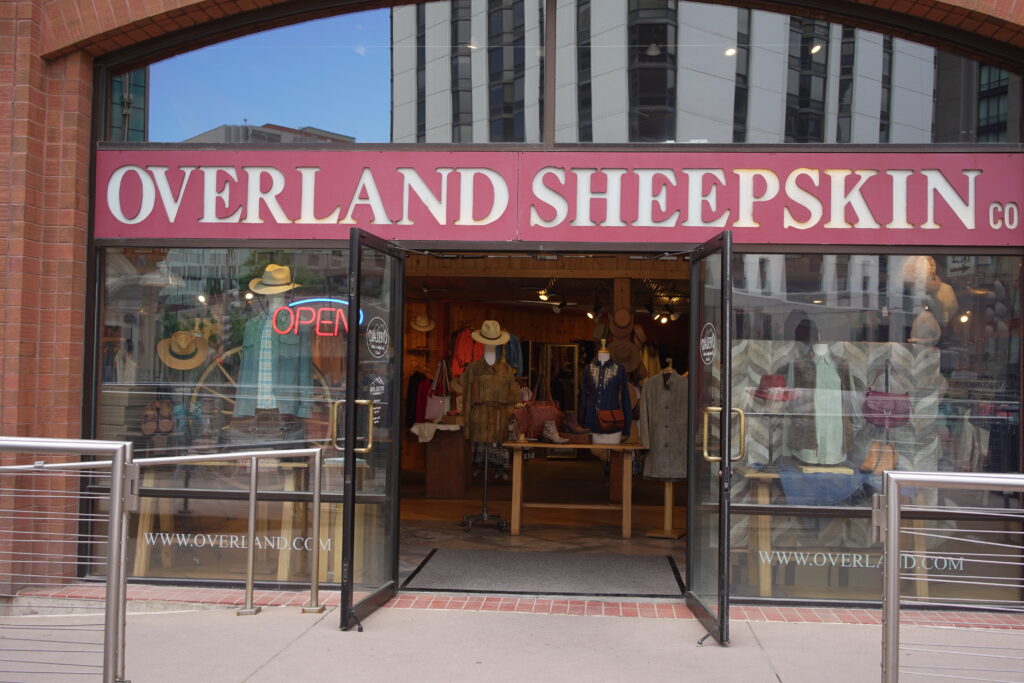
How Much Fur is Sold in Denver?
Even though there is a growing awareness of the cruelty that is involved in the production of fur, there are still many stores in Denver that continue to sell new fur products. Overland Sheepskin, Louis Vuitton, Neiman Marcus, A Tsagas Furs and Leathers, Jonval Leathers and Furs, and Dan Sharp Luxury Outerwear are some of the remaining stores that market fur coats and accessories to affluent consumers as status symbols. These typically range in price from $1,000 to upwards of $30,000, marketed as “luxury accessories.” However, their high cost hides the true price paid in animal suffering and environmental harm.
In reality, these stores are quickly falling behind modern values. While fur once symbolized wealth and status, it’s now associated with cruelty and environmental irresponsibility. The availability of cruelty-free alternatives, many of which are indistinguishable from real fur, makes it clear that fur is no longer necessary for warmth, fashion, or status.
The fur ban would send a clear message to these retailers: Denver is moving forward, and the days of profiting from animal suffering are coming to an end. By voting “yes” on Initiated Ordinance 308, Denver residents can help these businesses transition away from fur and embrace more ethical, sustainable fashion practices.
Changing Consumer Trends
According to a 2020 survey, 71% of Americans oppose killing animals for fur, and this is becoming increasingly obvious in consumer behavior. Fur sales have plummeted in recent years, with major fashion brands and retailers abandoning fur in favor of cruelty-free alternatives. Industry data found that global mink fur production halved between 2020 and 2022, and fox fur production wasn’t far behind.
More than 1,500 fashion brands worldwide, including iconic names like Chanel, Gucci, Prada, and Michael Kors, have committed to going fur-free. Thanks to impressive advances in technology, faux fur made from recycled materials and plant-based fibers now looks and feels almost identical to real fur.
Companies have been able to use everything from recycled synthetic fibers, such as PET plastics, to eco-friendly materials like hemp and bamboo in order to recreate the texture and insulation properties of animal fur. The result? Faux fur that’s not only sustainable but also just as luxurious, with brands like Stella McCartney and ECOPEL leading the way.
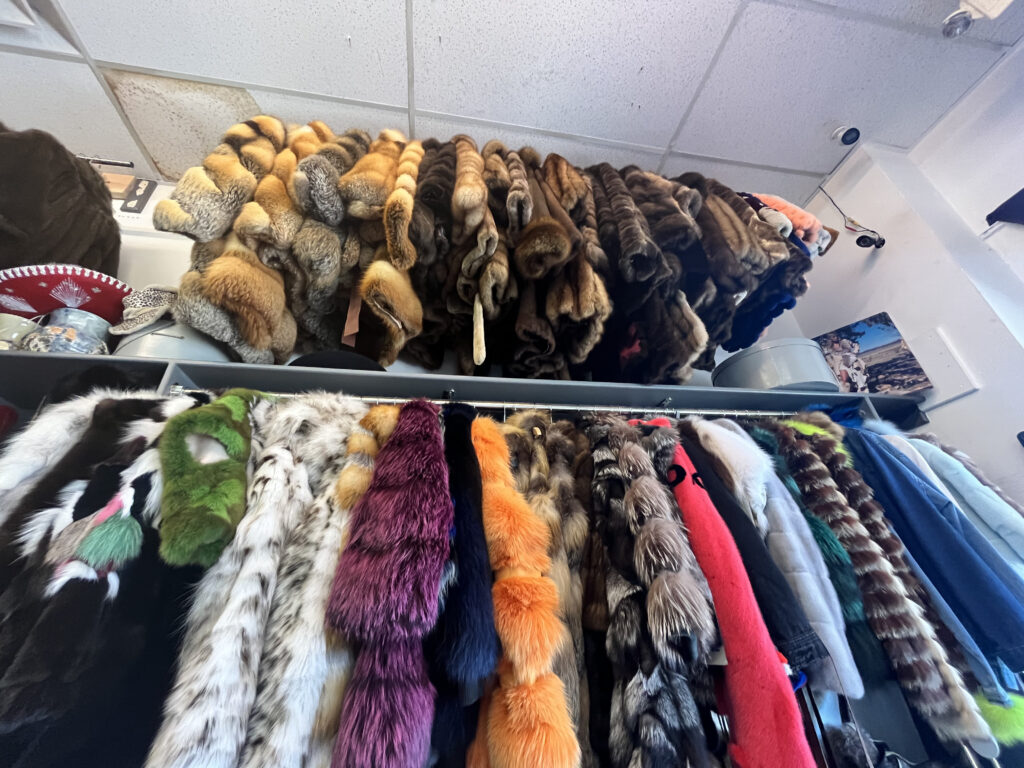
Environmental Impact of Fur Production
While the cruelty of fur farming is reason enough to ban the sale of fur, the environmental impact of fur production is another compelling argument for why 2024 is the right time for Denver to move forward with this legislation.
The truth is, over 95% percent of the fur industry’s skins come from animals on fur factory farms. Like other factory farms, fur factory farms are incredibly resource-intensive, contributing to deforestation, pollution, and climate change. One of the most significant environmental impacts of fur farming is its contribution to water and air pollution. Mink, one of the most commonly farmed animals for fur, has an especially large ecological footprint. A life cycle analysis of mink fur found that it produces nearly 400 times more water pollution than polyester and 271 times more air pollution than acrylic. The study also found that mink fur scored the worst for water consumption among all the materials studied.
Fur farming also generates large amounts of waste – according to a report from the Humane Society, each mink skinned by fur farmers produces about 40 pounds of feces in his or her lifetime. The manure produced by animals in fur farms releases harmful gasses such as nitrous oxide and ammonia, which contribute to air pollution and climate change. In addition, the chemicals used to treat fur, like formaldehyde and chromium, are highly toxic and pose a risk to both fur production workers and the communities surrounding the facilities. These chemicals can leach into the soil and waterways, which contaminates local ecosystems and harms wildlife.
It’s worth noting that the Denver fur ban’s impact extends beyond traditional animal fur products. For instance, in fly fishing, synthetic and plant-based alternatives have rendered fur unnecessary for fly tying. These alternatives offer comparable or better performance without cruelty, are often more affordable, and provide benefits like greater water resistance and durability. Materials such as EP fibers, Craft Fur, foam, polypropylene yarn, tinsel, mylar, and rubber legs are excellent substitutes for real fur in fly tying.
By passing the fur ban, Denver can take a stand not only for animals but also for the environment. This legislation is an opportunity for the city to reduce its environmental footprint and contribute to global efforts to combat climate change and protect the planet.
How Voting Yes on Initiative 308 Helps
Voting “yes” on the Denver fur ban is not about making fur illegal in denver; it’s about standing up for a more humane and sustainable future. By supporting Initiated Ordinance 308, Denver voters will help significantly reduce the demand for fur farming, encourage retailers to make the switch to cruelty-free alternatives and protect the environment from the harmful effects of fur production.
Denver has an opportunity to lead this movement and set an example for other cities in Colorado and across the United States. As more cities and states pass fur bans, the fur industry will face increased pressure to innovate, adapt, or shut down entirely.
Additionally, Denver’s fur ban will help raise awareness of the ethical and environmental issues of the fur industry, enabling consumers to make more informed choices when it comes to their purchases. As Denver voters, 2024 is our chance to make a real and measurable difference in the lives of millions of animals while contributing to a more sustainable fashion industry as a whole.
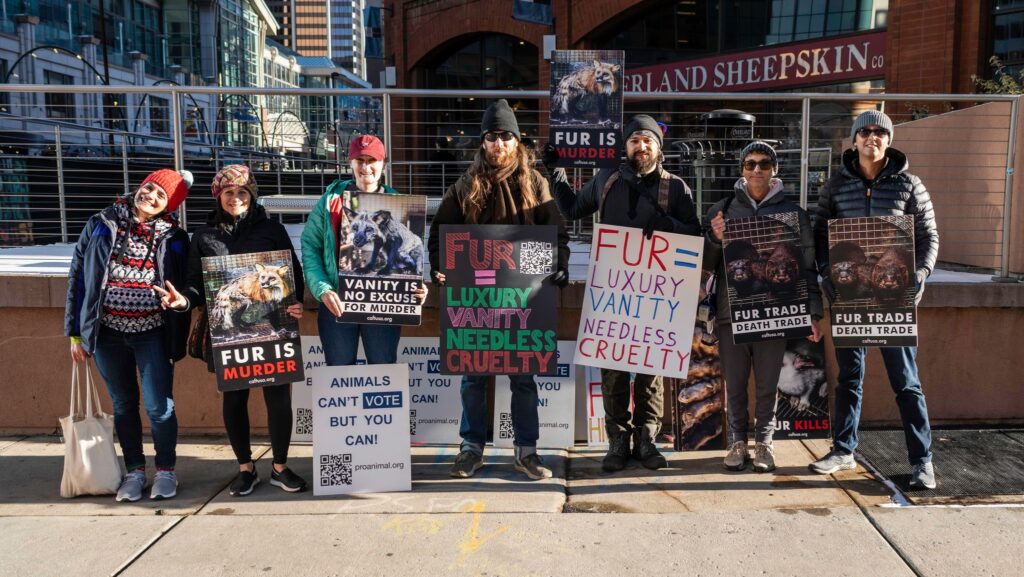
Which US Cities Have Banned Fur?
Denver, Colorado is not the first city to consider a fur ban, and it certainly won’t be the last. Cities across the United States and around the world are enacting legislation to end the sale of fur, reflecting a growing consensus that fur is an outdated and unethical material.
In 2013, West Hollywood became the first city in the world to ban the sale of fur, prompting a wave of similar legislation in other cities in California, including Berkeley, San Francisco, and Los Angeles. In 2019, California became the first state to pass a statewide fur ban, titled Assembly Bill 44.
Globally, more than 25 countries have passed laws restricting or banning fur farming, including the UK, Italy, and Ireland. Many of these bans were enacted in response to public outrage over the cruelty involved in fur farming, as well as growing concerns about the environmental impact of the industry.
Closer to home, Boulder became the first city in Colorado to ban the sale of fur in 2021 as part of the Humane Clothing Act, known formally as Ballot Measure 301, which passed with a 51% vote. Even though it was a close call, the ban set a precedent for Denver to follow suit.
A Vote for Change
The proposed ban on fur sales represents a significant moment for Denver. The 2024 General Election is a big opportunity to align the policies and laws of Denver with values of compassion, sustainability, and, ultimately, progress. By voting “yes” on Initiated Ordinance 308, Denver residents can help put an end to the cruelty of fur farming and join a growing global movement toward ethical fashion.
The fur ban will show that Denver is taking a stand for a future where animals are treated with respect and dignity, where fashion is sustainable, and where our actions as a society reflect our values. Denver has the opportunity to lead by example and show the country that compassion is always in style!

